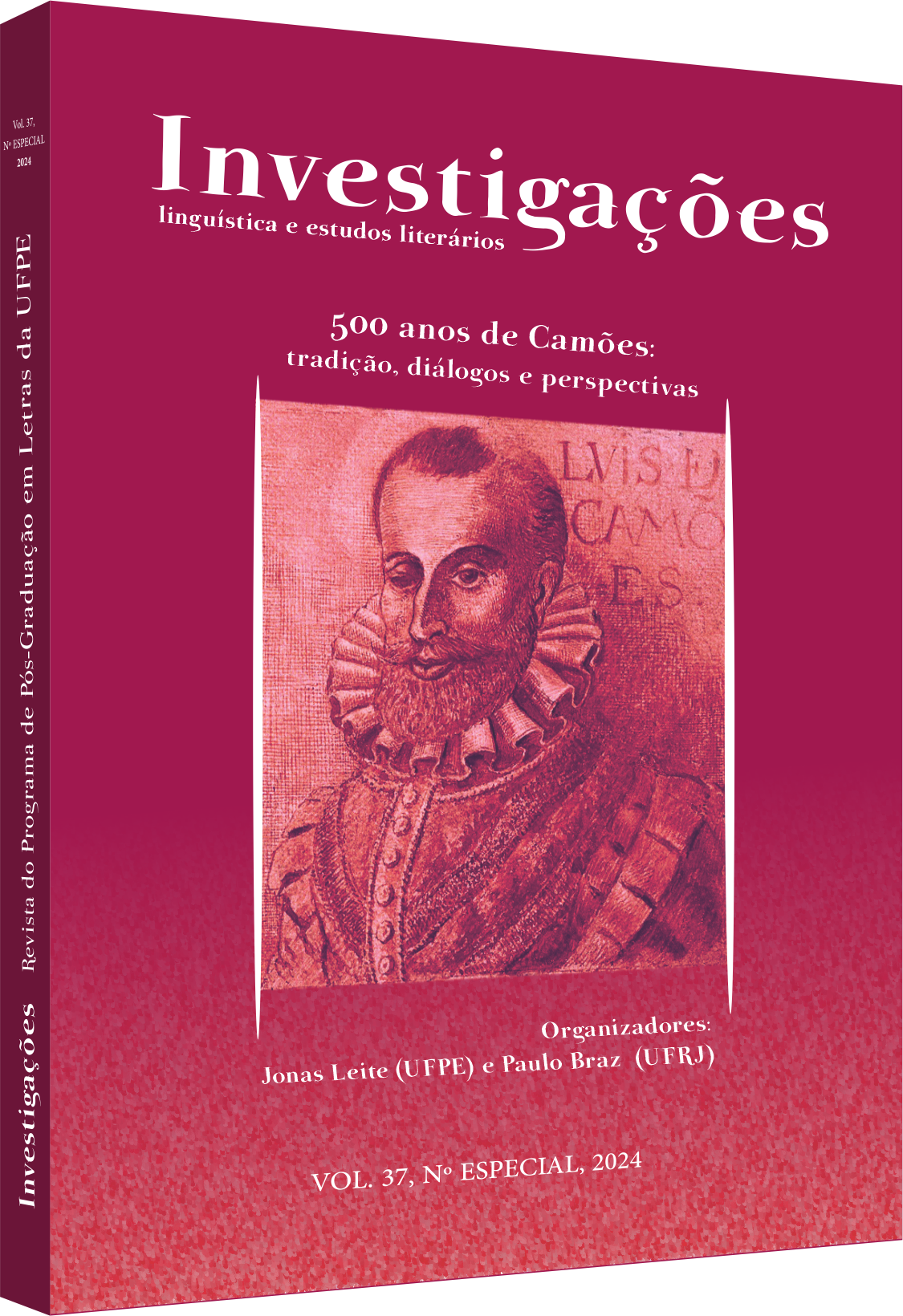“Illustrious games, with fearless players crown’d, while dice rolls on in every time renown’d”: ludic reading of The Lusiad as a boardgame
DOI:
https://doi.org/10.51359/2175-294x.2024.262981Keywords:
adaptation, playfulness, interactivity, readingAbstract
Luís de Camões wrote The Lusiad as an epic of the Lusitanian community, summarized in Vasco da Gama's voyage to the Indies. The book also constructs episodes that orbit different areas, such as the mythological sphere of the Latin gods, the historical sphere, recounting the achievements of the Portuguese kings, and the social sphere, in the critical speeches of the Old Man of Restelo or the final stanzas. In a dynamic and interactive reading strategy for this universe, an adaptation was made in the form of a boardgame, as an evocative link to reading this classic and a way to arousing the curiosity of potential new readers.
References
ANDRADE, Carlos Drummond de. Nova reunião: 23 livros de poesia. Rio de Janeiro: BestBolso, 2009. v. 2.
BARRETO, João Franco. Micrologia camoniana. Lisboa: Imprensa Nacional-Casa da Moeda, 1982.
BENJAMIN, Walter. Brinquedo e brincadeira. In: BENJAMIN, Walter. Magia e técnica, arte e política. Trad. Sérgio Paulo Rouanet. São Paulo: Brasiliense, 2012.
CAMÕES, Luís de. Os Lusíadas. Rio de Janeiro: Biblioteca do Exército Editora, 1980a.
CAMÕES, Luís de. Lírica completa II. Lisboa: Imprensa Nacional-Casa da Moeda, 1980b.
COELHO, Jacinto do Prado. Como ensinar literatura. In: COELHO, Jacinto do Prado. Ao contrário de Penélope. Lisboa: Bertrand, 1976.
HUIZINGA, Johan. Homo ludens. Trad. João Paulo Monteiro. São Paulo: Perspectiva, 2019.
HUTCHEON, Linda. Uma teoria da adaptação. Trad. André Cechinel. Florianópolis: Editora da UFSC, 2013.
LOURENÇO, Eduardo. O labirinto da saudade: psicanálise mítica do destino português. Lisboa: Dom Quixote, 1978.
LOURENÇO, Eduardo. Camões ou a nossa alma. In: FERREIRA, Vergílio [et. al]. Camões e a identidade nacional. Lisboa: Imprensa Nacional-Casa da Moeda, 1983.
MOURÃO-FERREIRA, David. Camões, poeta plural. In: FERREIRA, Vergílio [et. al]. Camões e a identidade nacional. Lisboa: Imprensa Nacional-Casa da Moeda, 1983.
REIS, Carlos. Estudos literários e ensino da literatura: o jardim dos caminhos que se cruzam. In: CARDOSO, Patrícia da Silva; BUENO, Luís (org.). Nós e as palavras. Cotia: Ateliê Editorial, 2018.
SENA, Jorge de. In: FERREIRA, Vergílio [et. al]. Camões e a identidade nacional. Lisboa: Imprensa Nacional-Casa da Moeda, 1983.
Downloads
Published
How to Cite
Issue
Section
License
Copyright (c) 2024 Saulo Gomes Thimoteo

This work is licensed under a Creative Commons Attribution 4.0 International License.
Authors who publish with Revista Investigações agree to the following terms:
Authors retain copyright and grant the journal right of first publication with the work simultaneously licensed under the Creative Commons Attribution 4.0 International (CC BY 4.0) license that allows others to share the work with an acknowledgement of the work's authorship and initial publication in this journal.
Authors are able to enter into separate, additional contractual arrangements for the non-exclusive distribution of the journal's published version of the work (e.g., post it to an institutional repository or publish it in a book), with an acknowledgement of its initial publication in this journal.
You are free to:
Share — copy and redistribute the material in any medium or format for any purpose, even commercially.
Adapt — remix, transform, and build upon the material for any purpose, even commercially.
The licensor cannot revoke these freedoms as long as you follow the license terms.
Under the following terms:
Attribution — You must give appropriate credit , provide a link to the license, and indicate if changes were made . You may do so in any reasonable manner, but not in any way that suggests the licensor endorses you or your use.
No additional restrictions — You may not apply legal terms or technological measures that legally restrict others from doing anything the license permits.

